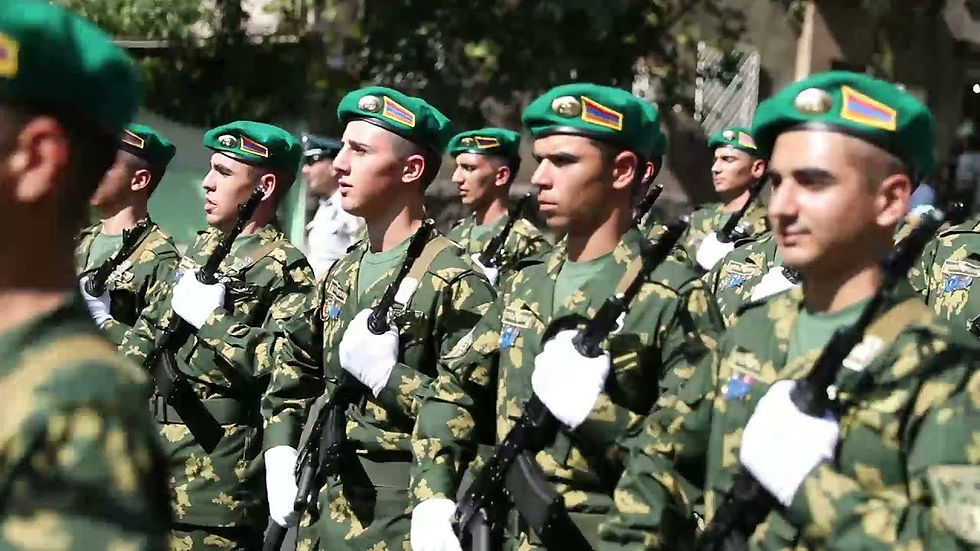Putin and Pashinyan Agree to Withdraw More Russian Troops from Armenia’s Border

Starting January 1, 2025, Armenia will assume more control over its border security with Iran and Turkey, following an agreement reached between Armenian Prime Minister Nikol Pashinyan and Russian President Vladimir Putin. This decision is a major shift in Armenia’s approach to its border management and reflects changing dynamics in its relationship with Russia.
The agreement was announced on October 8, 2024, during a meeting between the two leaders in Moscow. Nazeli Baghdasaryan, the spokesperson for Prime Minister Pashinyan, shared the details of the agreement on social media. She explained that from January 2025, Armenian National Security Service (NSS) border guards will take full responsibility for operating the control point at the Armenia-Iran border. In addition, Armenian troops will work alongside Russian forces to secure the Armenia-Turkey and Armenia-Iran border.

Baghdasaryan also mentioned that Pashinyan expressed his gratitude to President Putin for the long-standing role Russian border guards, particularly from the Russian Federal Security Service (FSB), have played in securing the Armenia-Iran border since Armenia's independence in 1991. She wrote about the importance of this partnership but confirmed that Armenian forces are now ready to assume greater responsibility for these crucial border points.
For decades, Russian forces have protected Armenia’s borders with Iran and Turkey as part of the close military ties between the two countries. However, this recent agreement is a notable shift toward Armenia taking on more control over its national security, particularly in light of increasing tensions with Russia over the past year.

The decision comes after months of evolving diplomatic relations between Armenia and Russia. In March 2024, Armenia requested the removal of Russian border guards from Yerevan’s Zvartnots International Airport, a move that sparked criticism from Moscow. The Russian Foreign Ministry warned that Armenia’s actions could harm Russian-Armenian relations and jeopardize Armenia’s security and economic development.
Despite these warnings, Armenia has continued to push for greater autonomy over its own security measures, reflecting a broader trend in its foreign policy. While Russian border guards will no longer be stationed at the Armenia-Iran border checkpoint, they will remain present at other border areas, including the Armenia-Turkey border, where Armenian forces will now join them.
The shift in border control comes against the backdrop of growing tensions between Armenia and Russia. Relations between the two countries have been strained following the 2023 military conflict in Nagorno-Karabakh, during which Azerbaijan launched a swift offensive and took control of the region. Armenia expressed dissatisfaction with Russia’s peacekeeping efforts, accusing Russian forces of failing to prevent Azerbaijan’s advances.
The fallout from the Nagorno-Karabakh conflict has fueled Armenia’s desire to reassess its security arrangements and its relationship with Russia. Although Armenia remains a member of the Russian-led Collective Security Treaty Organization (CSTO), it has suspended its active participation and is exploring closer ties with Western nations, including the European Union. In recent years, Armenia has sought to diversify its alliances, balancing its traditional reliance on Russia with a more independent approach to its foreign policy.
As Armenia prepares to take over more control of its borders, this shift reflects broader changes in the country’s geopolitical strategy. By assuming more responsibility for its own security, Armenia is signaling its desire to assert greater sovereignty while navigating the complexities of its relationships with neighboring powers and global allies.
The decision to reduce Russia’s role in Armenia’s border protection is a key step in this process. However, it remains to be seen how these changes will impact Armenia’s broader security framework and its long-standing alliance with Russia. In a region marked by shifting alliances and geopolitical tensions, Armenia’s future will likely depend on how it balances its traditional ties with Russia while pursuing new partnerships and asserting its independence.
As of January 2025, the border checkpoint with Iran will be under full Armenian control, while cooperation between Armenian and Russian forces will continue along the Armenia-Turkey border. This development marks a significant turning point in Armenia’s border security policy and shows the country’s evolving role in the South Caucasus region.




Comments